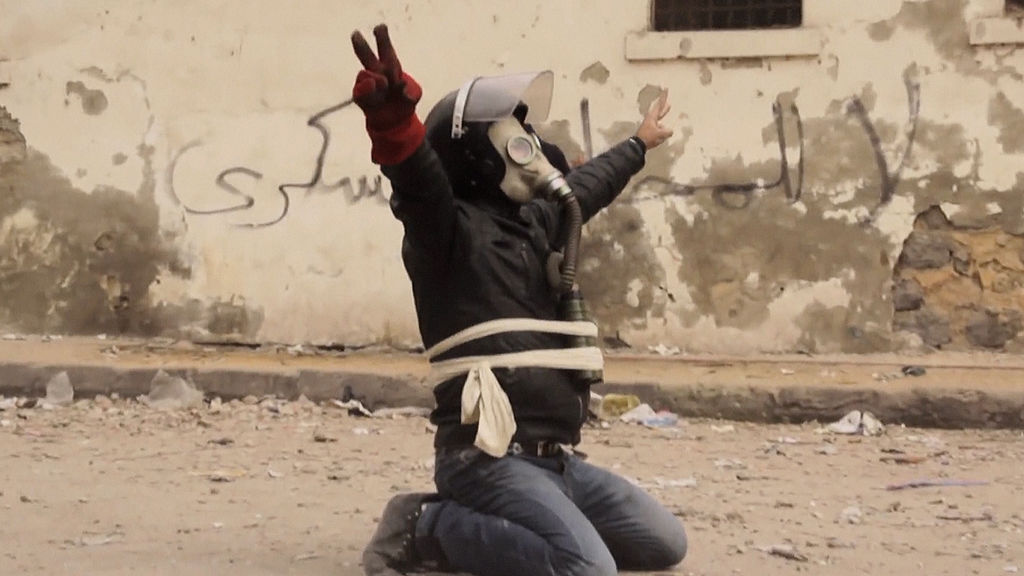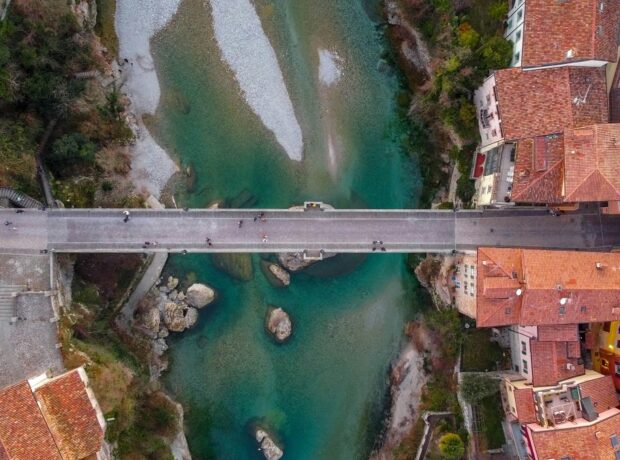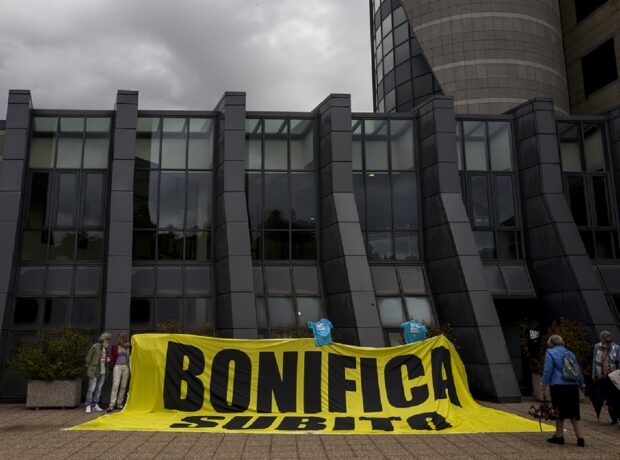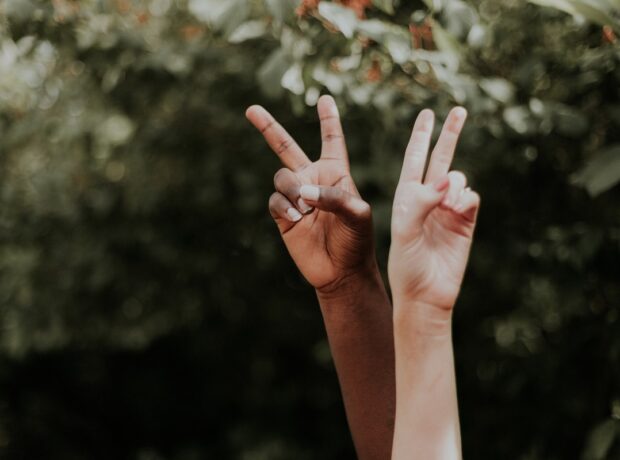If you plan to spend less time binging on box sets in 2019, discover something new with these thought-provoking Netflix documentaries and films. Tackling politics, feminism, environment and police brutality, our editors’ pick features critically-acclaimed and award-winning human rights documentaries from around the world.
The Square (2013)
Oscar-nominated documentary The Square (not to be confused with the Swedish satirical drama of the same name) demonstrates the power of grassroots protest. It provides a personal, first-hand account of the series of Egyptian revolutions from 2011-2013 that took place in Tahrir Square.
The documentary follows individuals among the masses of people who took to the streets and occupied the square in protest at Egypt’s oppressive regime. Initiated by the overthrow of dictator Hosni Mubarak, it documents one of the most tumultuous political periods witnessed by any nation, as dictators, military rulers and elected presidents are installed and deposed by protesters standing firm in the face of continuing violent repression.
Find more about the Arab Spring and Egypt’s protest movement here.
13th (2016)
This award-winning documentary starts out with a stark fact: The US accounts for just 5% of the world’s population, but has 25% of the world’s prisoners.
Over the next hour and 40 minutes scholars, activists and politicians will unpick how the land of the free has the highest rate of incarceration in the world, interrogating the rhetoric of “black criminality” and expertly connecting the dots between the system of slavery abolished by the 13th amendment in 1865 and today’s prison population.
Picking up a BAFTA, a Peabody Award and a Critics’ Choice Award, documentaries don’t get much better than this. When you’ve finished tune into the Netflix interview between Oprah and 13th filmmaker Ava DuVernay.
E-Team (2014)
Crucial viewing for anyone with an interest in humanitarian work, this documentary displays the courage of human rights activists tasked with providing emergency response.
Following the members of the eponymous Emergency Team of Human Rights Watch, the cameras show family life at home for married couple Anna Neistat and Ole Solvang as well as capturing them dashing over the Syrian border under cover of darkness – and a burqa.
One of the film’s most striking moments displays the bravery of human rights activist Fred Abrahams, as he delivers his courtroom testimony against Slobodan Milosevic, while the dictator stares at Abrahams intimidatingly, sitting just a few feet away. Extraordinary work by otherwise ordinary people.
Find an interview with E-Team star Anna Neistat here.
Saving Capitalism (2017)
If you want a bite-size guide to economics this is for you. Consider it a crash course on America’s economy, how it came to be where it is today and how repugnantly unequal and unjust it is.
Evenhanded in his assessment, former Secretary of Labor Professor Robert Reich presents the documentary, based on his 2015 book of the same name. (He’s the man who introduced Bill and Hillary (then Rodham) Clinton and the film briefly features pictures of them before they were fine-tuned for screens across America.)
By the end of the 73 minutes you’ll appreciate the problems of a free market ruled by banks, big business and the elite, you’ll be shocked by phenomenal power of pharmaceutical companies, and you’ll likely be raging against the inequality of it all and questioning how the 99% can change the system.
Find five post-capitalism politics books every student should read here.
The White Helmets (2016)
This Oscar-winning documentary is an inspiring account of the brave, apolitical Syrian volunteers who scramble to disaster sites, launching search and rescue missions to reach the victims of airstrikes.
The 40-minute film follows a local group of White Helmets who brave the bombsites of devastated Aleppo. The volunteers were awarded the Nobel Peace Prize for their work in saving hundreds of thousands of lives. It’s a moving testament to the human cost of conflict, but also to the courage and humanity of those who risk everything to respond to it.
Donate to support the White Helmets here.
She’s Beautiful When She’s Angry (2014)
Mary Dore scours the archives to uncover never-before-seen footage celebrating the radical trailblazers who led the feminist movement of the 1960s.
Her critically-acclaimed film confronts intersectional issues of race and sexual orientation, while skilfully linking the pioneers of the past with modern women who continue to live lives plagued by gender inequality.
Find 11 excellent feminist podcasts here.
On My Skin (Sulla mia pelle) (2018)
This haunting and heart-wrenching film follows the last painful days in the life of 31-year-old Stefano Cucchi, who died in police custody in Italy in 2009. Small-time drug dealer Stefano finds himself arrested, jailed and brutally beaten by a gang of police officers.
Director Alessio Cremonini chooses not to show the violence behind a closed door. Instead the focus is on the consequences – the slow deterioration of Cucchi, an amateur boxer, into a frail shadow of his former self. Frustratingly, time and time again Cucchi has the opportunity to point the finger at his abusers, but viewers feel his fear, reticence and resignation. A painful portrait of police brutality.
Cucchi’s family are still fighting for justice. More here.
First They Killed My Father (2017)
Cambodian author and human rights activist Loung Ung recounts the horrors she suffered as a child under the rule of the Khmer Rouge. With screenplay by Angelina Jolie.
Time: The Kalief Browder Story (2017)
Executively produced by Shawn “Jay Z” Carter and directed by Jenner Furst, this six-part series examines the injustice of the US judicial system through the story of Kalief Browder.
In 2010, 16-year old Kalief was accused of the theft of a backpack. Awaiting a trial, he was imprisoned in Riker’s Island, a violent prison complex, where he spent three years (two of which were in solitary confinement). He was released after his lawyer claimed there was insufficient evidence to convict him: he spent his late adolescent years imprisoned for a crime he did not commit.
Prostitution: What’s the harm? (2014)
Presenter Billie JD Porter investigates people’s attitudes towards and experiences of the UK’s prostitution industry. Meeting with pimps, professional escorts and women working the streets in some of the most dangerous areas of the country, Porter gives rare glimpses of a world that remains largely unknown to majority of the UK’s population.
Winter on Fire: Ukraine’s Fight for Freedom (2015)
This documentary follows the civil rights movement in Ukraine, developing from a series of peaceful student demonstrations into a violent revolution, and showing citizens facing down riot police as the country rises up against President Viktor Yanukovych.
Although Oscar-nominated, the documentary has been accused of showing a “whitewashed” version of the Maidan uprising by “glossing over” the role played by the far-right in the revolution.
Find out more about the far-right in Ukraine here.
The Confession Tapes (2017)
In this seven-part series, director Kelly Loudenberg investigates various cases where detectives extracted confessions under extreme circumstances to get a conviction. Maintaining a focus on the circumstances that led to these false confessions, the series has drawn many fans of Netflix’s crime docu-series Making a Murderer.
The show leaves the audience questioning: Would I ever confess to a crime I did not commit?
Best of the rest…
The following films aren’t on Netflix but can be watched for free, rented or bought via the links below.
Wasted Waste (2018)
With 3.6 million kilos of food wasted each day (enough to feed 870 million people), this Portuguese film focuses on “freeganism”, an alternative lifestyle dedicated to boycotting capitalism, reducing our environmental impact and rejecting human or animal exploitation.
Find it at Films for Action.
We Are Many (2014)
Amir Amirani’s salute to the spirit of protest captures the mammoth mobilisation of citizens when, in 2003, unprecendented worldwide protests drew millions of people across 60 countries to march against the Iraq War.
Hear the voices of Tony Blair, George W Bush and Robin Cook; feel the frustration when the will of the people is disregarded and ask, when will anyone be held accountable?
Find a review here, and buy or rent the film here.
Myanmar’s Killing Fields (2018)
This Frontline documentary from PBS uncovers secret footage and accounts from victims to understand the persecution and explusion of Rohingya Muslims in Myanmar, described by the US as having the “hallmarks of genocide”.
Filmmaker Evan Williams (of ‘Hunting Boko Haram’) poses the question of how former Nobel Peace Prize-winner Aung San Suu Kyi could stand by as Myanmar’s leader while the country’s military waged such a brutal campaign against the Rohingya people.
Find out more here. The film is currently unavailable in the UK but US viewers can watch it here.
Requiem for the American Dream
Political critic and intellectual Noam Chomsky narrates this film, based on his book examining the ’10 Principles of Concentration of Wealth and Power’.
Shot over four years -although you’d be forgiven for thinking it was shot in one sitting – the film constitutes the 87-year-old’s “final long-form interviews”.
Crammed with insight and clear in delivery, it’s an unsettling and sobering view of the enslavement of mankind.
Written by Gurpreet Dhaliwal, Rose Mudie and Mary Griffin.
- Like our content? Subscribe here and follow us on Facebook, Twitter or Instagram.



